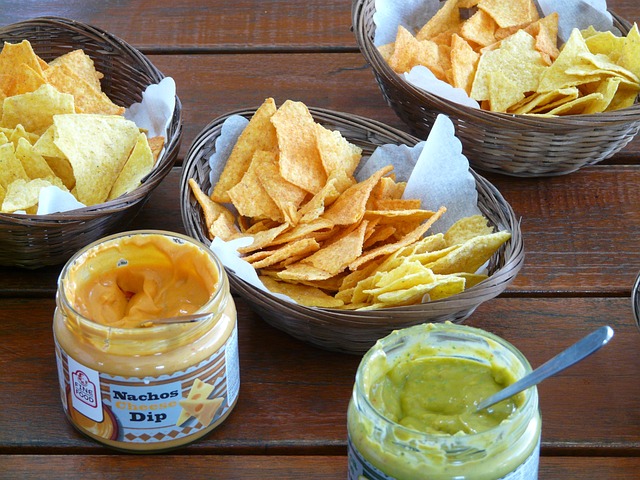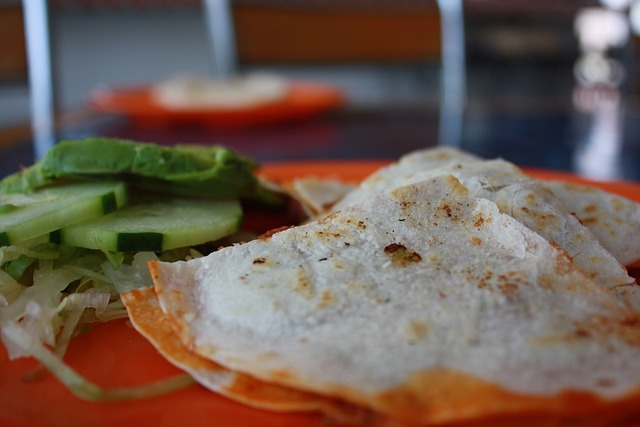The Maxwell Street Market in Chicago's West Loop is renowned for its global cuisines and rich heritage, with a focus on classic tortilla chips crafted by skilled vendors known as 'donkeys'. These hand-made chips, using traditional techniques and local ingredients, have become an iconic part of the market's culture, appealing to locals and visitors alike. The story of donkey carts transforming into chip-making stands is a testament to the market's enduring spirit and culinary innovation.
“Explore the vibrant history and culinary journey of Maxwell Street Market’s tortilla chip vendors, a unique chapter in Chicago’s food scene. From humble beginnings, these vendors transformed classic tortilla chips into a sensory experience. Discover how ‘Donkey’, once a simple cart, became a culinary sensation, sharing its secrets for perfectly crispy chips. Uncover the art of hand-cutting, where tradition meets innovation, and witness how these vendors united the community through their delicious offerings.”
- A Historical Glimpse into Maxwell Street Market's Culinary Heritage
- The Rise of Tortilla Chip Vendors in Chicago's Iconic Market
- Classic Tortilla Chips: A Tasteless Staple Transformed
- Donkey's Role: From Cart to Culinary Sensation
A Historical Glimpse into Maxwell Street Market's Culinary Heritage

Maxwell Street Market, located in Chicago’s vibrant West Loop neighborhood, is a culinary gem with a rich history that dates back to the late 19th century. This iconic market has been a melting pot of cultures and cuisines, where vendors from diverse backgrounds have contributed to its unique character. Among the many delights on offer, classic tortilla chips prepared by dedicated vendors stand out as a testament to the market’s culinary heritage.
The tradition of making tortilla chips at Maxwell Street Market dates back several generations, with stories of immigrants bringing their recipes and techniques from Mexico and other Latin American countries. The chips, often made from simple yet flavorful ingredients like corn tortillas, vegetable oil, and sea salt, have become a beloved staple for both locals and visitors alike. Donkeys, once used to transport goods, now symbolize the market’s enduring spirit and the hard work of its vendors, who continue to create classic tortilla chips that are as delicious today as they were in the past.
The Rise of Tortilla Chip Vendors in Chicago's Iconic Market

In the heart of Chicago, nestled within the vibrant Maxwell Street Market, a unique culinary phenomenon has been unfolding for decades—the rise of tortilla chip vendors. What started as a small side hustle has transformed into an iconic part of the market’s rich history and culture. These vendors, often known for their classic tortilla chips, have become a beloved fixture for locals and visitors alike.
The market’s bustling atmosphere is incomplete without the tantalizing aroma of freshly made tortilla chips. Donkey-drawn carts, once a common sight, now give way to modern stands, all offering a variety of crisp, golden chips. The vendors’ expertise lies in their ability to perfect the art of chip-making, ensuring each batch is as delicious as the last. With a simple twist of salt or an array of flavors, these tortilla chips have captivated Chicago’s taste buds and became a must-try for anyone exploring the famous Maxwell Street Market.
Classic Tortilla Chips: A Tasteless Staple Transformed

Classic tortilla chips, often overlooked and treated as a mundane staple in many households, have an intriguing story waiting to be told. These seemingly ordinary crispy treats have evolved from simple ingredients into a beloved snack across various cultures. In the vibrant world of Maxwell Street Market, Chicago’s renowned culinary hotbed, vendors play a pivotal role in transforming these classic tortilla chips into something extraordinary.
The journey begins with carefully selected corn or wheat tortillas, hand-cut into uniform triangles, and then double-fried to achieve that perfect crispness. But it’s not just about the process; it’s the passion and creativity of the donkey (a term affectionately used for the skilled chip makers) that elevates these chips from mundane to magical. Local flavors, secret spices, and innovative techniques turn a simple snack into a culinary adventure, ensuring every bite is a testament to the art of chip making.
Donkey's Role: From Cart to Culinary Sensation

In the vibrant heart of Maxwell Street Market, a humble donkey cart once played a significant role in a culinary revolution. What began as a simple means of transportation for chip vendors soon transformed into a foodie phenomenon. These vendors, with their classic tortilla chips, harnessed the donkey’s power to bring crispy, golden treats to hungry patrons. The rhythmic clop-clop of hooves echoed through the market, signaling the arrival of freshly made, hand-cut chips that would become a beloved staple for locals and visitors alike.
The donkey, once a workhorse, became an iconic symbol of this unique culinary experience. Its role in transporting carts loaded with ingredients and cooked goods led to the creation of a dish that redefined street food. The classic tortilla chips, crafted with care and passion, showcased the versatility and appeal of simple, yet delicious cuisine. This unexpected partnership between man and donkey left an indelible mark on the market’s history, forever changing the way we think about street food and its potential to surprise and delight.
The Maxwell Street Market has long been a culinary gem in Chicago, and its tortilla chip vendors have played a significant role in this vibrant food scene. From humble beginnings to becoming a taste sensation, classic tortilla chips have evolved, thanks to innovative venders like the ones found on these historic streets. The market’s rich history and the Donkey’s iconic status as a culinary symbol highlight the power of local traditions and their ability to transform simple ingredients into memorable bites.
